Online Learning Portal
Online Learning Portal

Hybrid Classes
We provide offline, online and recorded lectures in the same amount.

Personalised Mentoring
Every aspirant is unique and the mentoring is customised according to the strengths and weaknesses of the aspirant

Topicwise Mindmaps
In every Lecture. Director Sir will provide conceptual understanding with around 800 Mindmaps.

Quality Content
We provide you the best and Comprehensive content which comes directly or indirectly in UPSC Exam.
IAS Foundation 2024
Optional Classes
Current Affairs
Test Series
Others Links
UPSC Prelims Classes 2024
Prelims
Mains Classes 2024
Mains & Interview
Mains Material
Test Series
Free Study Material

DAILY NEWS ANALYSIS
Restrictions on Court Hearings Lawful Part of: GS Prelims and GS-II- Judiciary Recently, the Supreme Court held that all restrictions imposed on people from entering, attending or taking part in court hearings are lawful in the wake of the Covid-19 pandemic. The court said these restrictions were in tune with the social distancing norms and best public health practices advocated to contain Covid-19. Duty vs Discretion: The apex court
Context: It was thought that on retirement from high constitutional office, a judge would lead a retired life. Nobody ever expected them to accept plum posts. But the clear demarcation between the judiciary and executive got blurred as many judges over the years began to accept posts offered by the government. Examples: A few years ago, a former Chief Justice of India (CJI) was made a Governor by the ruling BJP government. (Sathasivam is the second judge from Tamil Nadu to bec
PRISON REFORMS 'Prisons'/'persons detained therein' is a State subject under Entry 4 of List II of the Seventh Schedule to the Constitution of India. Administration and management of prisons is the responsibility of respective State Governments. However, the Ministry of Home Affairs provides regular guidance and advice to States and UTs on various issues concerning prisons and prison inmates. Supreme Court guidelines for prison reforms: The National Crime Records Bu
Reservation in India -Analysis The two main aims to provide reservation as per the Consitution of India are: Advancement of Scheduled Castes (SC) and the Scheduled Tribes (ST) OR any socially and educationally backward classes of citizens (Eg: OBC) OR economically weaker sections (EWS) – Article 15 (4), Article 15 (5), and Article 15 (6), Adequate representation of any backward class of citizens OR economically weaker sections (EWS) in the services under the State. – Artic
Introduction: Amidst the national lockdown, the Supreme Court and several other courts have been holding virtual proceedings. A question of concern to the Bar is whether virtual courts have become the “new normal” and whether it means a move away from the idea of open courts towards technology-based administration of justice without the physical presence of lawyers and litigants. Virtual courts: What is Virtual court? Virtual Court
Belated, but welcome: On Supreme Court move on migrant workers Introduction It is a matter of relief that the Supreme Court has at last taken cognisance of the plight of millions of inter-State workers looking for transport home and relief from the unrelenting misery unleashed on them by the lockdown. Justice delayed A three-judge Bench has initiated suo motu proceedings based on media reports and representations from senior advocates, observing that there have been inadequacies and
Rule of Law Index It is released by the World Justice Project, an independent organisation.It is a quantitative assessment tool designed to offer a detailed and comprehensive picture of the extent to which countries adhere to the rule of law in practice. The World Justice Project defines the rule of law system as one in which the following four universal principles are upheld: The government and its officials and agents are accountable under the law. The laws are clear, publicized, st
Supreme Court ruling- disqualification petitions In January 2020, a three-judge bench of the SC expressed its displeasure with the Speaker’s lack of urgency in deciding the disqualification petitions. It ruled that Speakers of assemblies and the Parliament must decide disqualification pleas within a period of 3 months. Extraordinary circumstances are exceptions to this. The ruling settled the law for situations where the timing of the disqualification is misused to manipulate fl
Disabled are entitled to same benefits of SC/ST quota: Supreme Court The Supreme Court, in a significant decision, confirmed that persons suffering from disabilities are also socially backward and entitled to the same benefits of relaxation as Scheduled Caste/Scheduled Tribe candidates in public employment and education. A three-judge Bench led by Justice Rohinton Nariman upheld a 2012 judgment of the Delhi High Court in Anamol Bhandari (minor) through his father/Natural Guardian v. Delh
Plea bargaining What is plea bargaining and how does it work? Context * Many members of the Tablighi Jamaat belonging to different countries have obtained release from court cases in recent days by means of plea bargaining. * Accused of violating visa conditions by attending a religious congregation in Delhi, these foreign nationals have walked free after pleading guilty to minor offences and paying the fines imposed by the court. * These cases have brought the focus on plea bar
A template to manage temples By K. Jayakumar is a former Chief Secretary of Kerala Context - In a landmark judgment, the Supreme Court has held that the erstwhile Travancore royal family is the “human ministrant” or the shebait (manager) of the properties belonging to Sri Padmanabha, chief deity of the Sri Padmanabhaswamy temple in Thiruvananthapuram. - The judgment also makes it clear that the temple is a public temple and needs to be administere
Set up a High Court for Puducherry Context: - The article argues the case for a separate High Court for Puducherry. - Puducherry was a former French colony. Fifteen years after India gained independence; this small French colony was liberated on August 16, 1962 and merged with India. - Initially, the jurisdiction of the Madras High Court was extended to it. - Previously, there have been demands for a separate High Court or at least a Bench of the Madras High Court. -
The chilling effect of criminal contempt By, Justice A.P. Shah is retired Chief Justice, Delhi and Madras High Courts, and former Chairperson, Law Commission of India Context Supreme Court of India have dozens of constitutional cases that need to be desperately addressed, such as the constitutionality of the Citizenship (Amendment) Act, the electoral bonds matter, or the issue of habeas corpus petitions from Jammu and Kashmir. It is disappointing that instead of taking up matters
Contempt of Court GS-PAPER-2 Governance (Mains-I.V) Recently, the Supreme Court of India initiated the proceedings for criminal contempt of court against lawyer-activist Prashant Bhushan. The contempt charges were lodged in the context of the comment made on social media, targeting the current Chief Justice of India. The contempt power is needed to punish wilful disobedience to court orders (civil contempt), as well as interference in the administration of justice and overt th
Enact a law to bar criminals in elections, asks Madras HC Context: The Madras High Court has directed the Centre to explain in two weeks as to why it should not enact a law prohibiting people with criminal background from contesting in parliamentary, Assembly and local body elections. The observations were made while dealing with the HCP(Habeas Corpus Petition) to quash a preventive detention order passed against Jana alias A. Janarthanan, who is facing as many as 19 criminal cases in
What is criticism and what is contempt? By, Gautam S.Raman is an advocate practicing at the Madras High Court Context A recent order of the Supreme Court found senior advocate Prashant Bhushan guilty of contempt for two tweets — one relating to the Chief Justice of India astride an expensive motorcycle and the other a comment that the Supreme Court, in his opinion, played a role in the destruction of democracy in India over the last six years. Criminal contempt 2(c)
Where is the sentinel guarding our rights? Context This article talks about the need for the Supreme Court to re-address its role assigned under the Constitution as “sentinel on the qui vive’. What is “sentinel on the qui vive”? •“sentinel on the qui vive” means the watchful guardian of fundamental rights. Issues With regard to the exercise of power: Since the assumption of office by Chief Justice J.S. Khehar in 2017, the Cour
Fair and unfair Context: Madras High Court has decided not to pursue the ill-conceived attempt to initiate action against film actor Suriya for contempt of court. News: The actor had questioned the correctness of the Supreme Court in allowing NEET to be held across the country during the pandemic when the Court itself was holding virtual hearings out of fear of infection. It was clear from the beginning that it constituted no contempt, as it did nothing more than raise the
In- House Procedure Against Judges of Higher Judiciary What is in the News? Recently, in a letter to the Chief Justice of India (CJI), Andhra Pradesh Chief Minister has accused the Supreme Court judge, Justice N.V. Ramana and some judges of Andhra Pradesh (AP) High Court of misconduct, corruption and political bias. The allegation against the judges is unprecedented since it has been made publicly. What are the Issues Involved? The Constitution of India protects the ind
Changing the discourse on victim jurisprudence Context Supreme Court has led the movement for recognition of victim rights to access to justice, compensation and assistance, little has changed in terms of both the black letter of the law and the ground realities. There is an overwhelming need to re-conceptualise the institutions of our criminal justice system to account for victims both at the pre- and post-crime levels. As opposed to post-crime mitigation and rehabilitation, a pr
Amid a judicial slide, a flicker of hope on rights By, Justice Ajit Prakash Shah is retired Chief Justice, Delhi and Madras High Courts, and former Chairperson, Law Commission of India An expeditious hearing The application before the Supreme Court was in an appeal against the decision of the Bombay High Court to refuse to entertain Mr. Goswami’s habeas corpus petition, citing procedure that no bail can be granted in a petition under Article 226 of the Constitution and requirin
Judicial Activism and Marriage Laws The Allahabad High Court has ruled that the provision of publication of notice of intended marriage under the Special Marriage Act, 1954, is not mandatory. The court, in a significant judgment delivered on January 12, said making such publication mandatory “would invade the fundamental rights of liberty and privacy, including within its sphere the freedom to choose for marriage without interference from state and non-state actors, of the pe
Patriarchal mind-set within the Judiciary NCRB data on women related crimes A survey by the Thomson Reuters Foundation in 2018 had rated India as the most dangerous country for women. According to a National Crime Records Bureau report (2019) as many as 32,032 rapes were reported in 2019 — or 88 incidents of rape a day. Every hour, 39 instances of crime against women including four instances of rape are committed in India. Reported rape cases have increased by 88% over a
Bangkok General Guidance for Judges in Applying a Gender Perspective Background The Bangkok General Guidance for Judges in Applying a Gender Perspective was discussed and adopted by judges from Philippines in 24 to 25 June 2016, hosted by the ICJ and UN Women. The idea to initiate the development of the Bangkok General Guidance emerged from the ASEAN Regional Dialogue on Judging with a Gender Perspective, which was held in Jakarta, Indonesia in 2015. General Guidance The Ba
Vacancies in Judiciary Over 60% of the sanctioned strength of judges was vacant at Patna High Court. High Courts with highest vacancy was in Patna(60%) > Calcutta(55.6%) > RJ(54%) > MP(49.1%) > (48.6%). High courts with lowest vacancy MN(0%) > ML(0%) > SK(0%) > KR(14.9%) > Guwahati(16.7%). Huge workload: Judges in high courts hear between 20 and 150 cases every day, or an average of 70 hearings daily. The average time that
Phase III eCourts Project of Supreme Court In another major initiative, the eCommittee Supreme Court has prepared the draft vision document for Phase III of the eCourts Project under the auspices of the Supreme court of India. E-Courts Project is a mission mode project undertaken by the Department of Justice, Government of India. The eCommittee Supreme Court of India yesterday released the Draft Vision document for Phase III of the aforementioned e-Courts Project. The eCommit
Judicial Appointments Context: CJI Sharad A. Bobde had recommended Justice Nuthalapati Venkata Ramana, the seniormost judge of the Supreme Court, for appointment as the 48th Chief Justice of India. About NV Ramana: Student leader working for farmers and industrial workers to journalist for a leading Telugu newspaper to a first-generation lawyer. He was Additional Advocate General for Andhra Pradesh before being called to the State High Court Bench in 2001. Justice Ramana was
Judicial Appointments in India What is Collegium? Collegium system of the Supreme Court (SC) and the High Courts (HCs) of India is based on the precedence established by the “Three Judges Cases (1982, 1993, 1998) “. It is a legally valid system of appointment and transfer of judges in the SC and all HCs. It is a system of checks and balance, which ensures the independence of the senior judiciary in India. The Judges Cases The First Judges Case (1981) ruled tha
Delay In Judicial Appointments In light of the extraordinary delay in filling up judicial vacancies and to clear the mounting arrears in the various High Courts, the Supreme Court decided to invoke a “dormant provision” in the Constitution to clear the way for the appointment of retired judges as ad hoc judges. Article 224A of the Constitution, which provides for appointment of ad hoc judges in the High Courts based on their consent. A Bench headed by CJI S.A. Bobde has made it
Appointment of Ad hoc judges Introduction The Supreme Court’s decision to invoke Article 224A in the Constitution to clear the way for the appointment of retired judges as ad hoc judges to clear the mounting arrears in the various High Courts is an indictment of the extraordinary delay in filling up judicial vacancies. Huge vacancy in High court Whether the fault lies with the Collegium system or the Centre’s tardiness, there is little doubt that the u
Judicial federalism in India Introduction In comparison to the legislature and the executive, what the judiciary can deliver in the realm of socio-economic rights is limited. Courts cannot build better health infrastructure or directly supply oxygen; neither are they functionally bound to. Courts often lack the expertise and resources to decide social rights issues. Parmanand Katara v. Union of India (1989) In Parmanand Katara v. Union of India (1989), the Supreme Cour
Judicial Appointments and Vacancies in India Judicial Vacancies has been the issue of Indian Judiciary since a long time now. Click here to read more on the UPSC Facts and Data for Vacancies in Indian Judiciary. Some Constitutional Provisions related to appoint of Judges Article 124(2) of the Indian Constitution provides that the Judges of the Supreme Court are appointed by the President after consultation with such a number of the Judges of the Supreme Court and of t
eCourts Project of Supreme Court In another major initiative, the committee Supreme Court has prepared the draft vision document for Phase III of the eCourts Project under the auspices of the Supreme court of India. E-Courts Project is a mission mode project undertaken by the Department of Justice, Government of India. The eCommittee Supreme Court of India yesterday released the Draft Vision document for Phase III of the aforementioned e-Courts Project. The eCommittee of the
Online Dispute Resolution in India NITI Aayog recently released a handbook on the Online Dispute Resolution mechanism. ODR has the potential to decentralize, diversify, democratize, and disentangle the justice delivery mechanism in India’s courts. Present Scenario in India’s Courts & Associated Issues The pendency of over 40 million cases in our judicial system remains a focal point for reform and reduction. This pendency makes a strong case for online dispute
Judicial Appointments and Vacancies in India Judicial Vacancies have been an issue in the Indian Judiciary for a long time now. Click here to read more on the UPSC Facts and Data for Vacancies in the Indian Judiciary. Some Constitutional Provisions related to appoint of Judges Article 124(2) of the Indian Constitution provides that the Judges of the Supreme Court are appointed by the President after consultation with such a number of the Judges of the Supreme Court an
Fast Track Special Courts (FTSCs) To bring more stringent provisions and expeditious trial and disposal of such cases, the Central Government enacted "The Criminal Law (Amendment) Act, 2018" and made provisions of stringent punishment including the death penalty for perpetrators of rape. This led to the establishment of the Fast Track Special Courts (FTSCs). Fast Track Special Courts are dedicated courts expected to ensure swift dispensation of justice. They have a
Post-retirement Allowances to Supreme Court Judges Image source - Fresh Headline The government recently changed the rules and boosted the post-retirement benefits for justices of the Supreme Court (SC). Major Points Present: The Center added post-retirement allowances to the Supreme Court judges' service regulations. The Supreme Court Judges (Salaries and Conditions of Service) Act of 1958 authorised the amendment of the regulations. The modifications take effect righ
Collegium System The Supreme Court Collegium system has recently come under fire from the Union Minister of Law and Justice for being opaque and without accountability. The Indian Constitution's Articles 124(2) and 217 address the appointment of judges to the Supreme Court and High Courts, respectively. How Did the Collegium System Develop? Rather than being established by a law passed by Parliament or a clause in the Constitution, the Collegium system for the appointment
Status of Indian judiciary Some experts recently suggested that India's judicial system be overhauled. Introduction British colonial legacy: The Indian judicial system is based on recorded judicial precedents that were inherited from the British colonial legacy. The Indian court system is hierarchical, with the Supreme Court of India, High Courts, and subordinate courts at the district, municipal, and village levels. Article 141: The Supreme Court's decisions on the const
Court Vacations The Supreme Court will not have a holiday bench when it takes its yearly winter vacation, the Chief Justice of India (CJI) recently stated. Although this court calendar has colonial origins, it has been the target of criticism for a while. How do Court Vacations work? Approximately: The High Court functions for about 210 days per year, the Supreme Court for 193 working days, and trial courts for 245 working days. High Courts have the authority to organise the
Article 145 – It says that a special bench of SC that comprises of at least 5 judges and deals with matters involving substantial question of law as to interpretation of the Constitution or the power of the President to consult the Court (Article 143). Article 137- It empowers the Supreme Court with the judicial review through which it can declare any law as void when it is unconstitutional or in derogation with the Fundamental Rights. Ar
Article 312 of the Constitution provides for the establishment of All India Judicial Service (AIJS), which shall not include any post inferior to that of a District Judge. The constitutional provision enables creation of the AIJS at District Judge level. In Government's view, a properly framed All India Judicial Service is important to strengthen overall justice delivery system. This will give an opportunity for induction of suitably qualified fresh legal talent selected thr
The Supreme Court has delivered several landmark judgments in 2023. S.No Name of the Case Judgement 1 Vivek Narayan Sharma v. Union of India Upheld the decision taken by the Union Government to demonetise currency notes of Rs. 500 and Rs.1000 denominations and held that it satisfies the test of proportionality. 2 Joseph Shine v Union of India
Nearly 1/5th of the district courts in India lack separate toilets for women, according to a report published by the Centre for Research and Planning of the Supreme Court recently. The Centre for Research and Planning will serve as a bridge between academic research, legal and judicial education and the judicial systems.
Supreme Court judge Justice BR Gavai has been nominated as the Chairman of the Supreme Court Legal Services Committee (SCLSC) recently. The SCLSC is a statutory body constituted under Section 3A of the Legal Services Authorities Act, 1987. It gives free legal services to the poor, marginalized, and unprivileged.
"Who are entitled to receive free legal aid? Assess the role of the National Legal Services Authority (NALSA) in rendering free legal aid in India" important for PAPER-2 UPSC examination Mains. Article 39-A of the Constitution in Directive Principle of State Policy mandates universal access to free legal aid, aiming to establish a legal framework that upholds justice without regard to social or economic distinctions. This constitutional provision led to the ena
The Supreme Court ruled that the concentration of a religious community in a particular area is not a valid reason to deny permission to another religious community to hold events or prayer meetings. The court also ruled that religious processions cannot be rejected based on religious grounds.
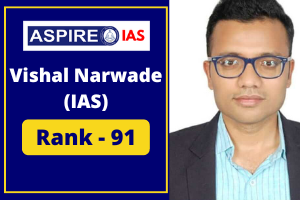
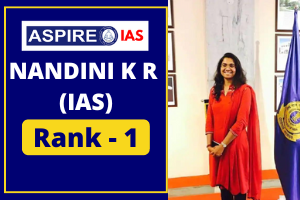
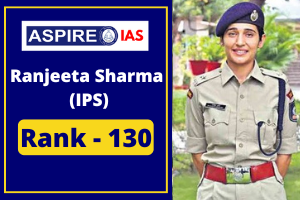
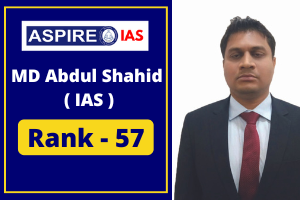
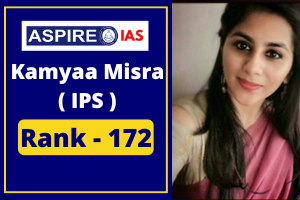
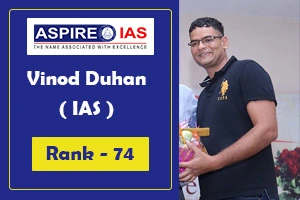
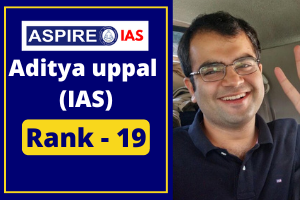
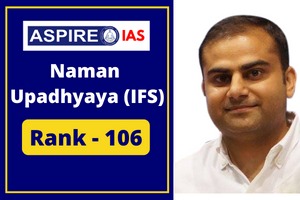
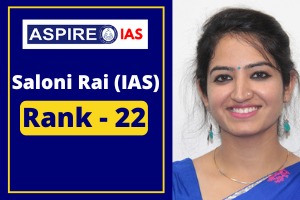










Our Popular Courses
Module wise Prelims Batches
Mains Batches
Test Series